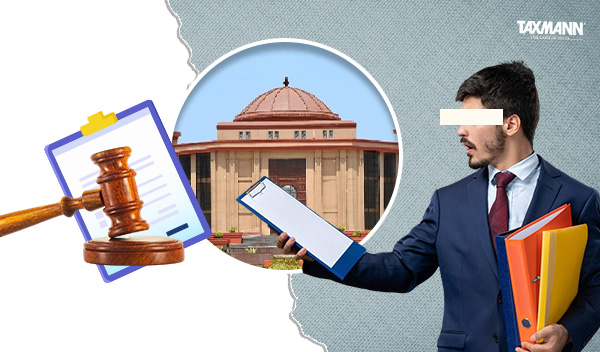
Case Details: Assistant Commissioner of Income-tax v. Sunil Kumar Agrawal - [2025] 176 taxmann.com 166 (Chhattisgarh)
Judiciary and Counsel Details
- Sanjay K. Agrawal & Deepak Kumar Tiwari, JJ.
-
Ajay Kumrani, Adv. & Amit Chaudhari, Standing Counsel for the Appellant.
-
Anand Dadariya, Adv. for the Respondent.
Facts of the Case
Assessing Officer (AO) conducted a search and seizure operation under Section 132 of the Income-tax Act, 1961, on the assessee. The assessee filed a settlement application before the Income Tax Settlement Commission (ITSC) for the block period, admitting a 10% net profit on the total gross receipts. The ITSC accepted the same.
Later, for the assessment year 2014-15, the assessee filed a return of income declaring income based on regularly maintained books. The case was selected for scrutiny under CASS. The Assessing Officer (AO) issued a notice proposing to apply a net profit rate of 10% on gross contract receipts and passed an assessment order under Section 143(3) read with Section 144, invoking Section 145(3), and determined the total income at Rs. 13.25 crore.
On appeal, the CIT(A) held that no defects or irregularities had been pointed out in the books, bills, or vouchers, and deleted the addition by accepting a net profit at 5.37%. The Tribunal affirmed the findings of the CIT(A), and the matter reached the Chhattisgarh High Court.
High Court Held
The High Court held that section 145 was not an assessment but a computation section. It instructs AO as to the method to be adopted in computing the profits and gains. Section 145 does not confer a mere discretionary power. Still, it imposes a statutory duty on the Income-tax Officer to examine in every case the method of accounting employed by the assessee and to see whether or not it has been regularly used and to determine whether the income, profits and gains of the assessee could correctly be deduced therefrom. AO can reject the accounts maintained by the assessee if he is not satisfied with their correctness or completeness.
Similarly, AO can reject the method of accounting followed by the assessee if the same is not by the provisions of section 145. However, in both situations, AO is required to assess in the manner provided under section 144. Meaning thereby that AO is authorised to determine the assessee’s total income based on ‘best judgment’ and, at the same time, disregard the income declared in the return. Therefore, the existence of infirmities and discrepancies in the accounts maintained by the assessee is sine qua non for invoking the provisions of section 145(3). Unless and until the AO expressly notices the infirmities and discrepancies in the accounts maintained by the assessee, section 145(3) cannot be invoked. Similarly, the principle of res judicata does not apply to the assessment proceeding.
Since no defect or discrepancy was recorded in books maintained for the relevant year, AO could not have invoked section 145(3) and applied net profit rate of 10 per cent solely based on the assessee’s earlier declaration before the Settlement Commission.
List of Cases Reviewed
- CIT v. A. Krishnaswami Mudaliar [1964] 53 ITR 122 (SC) (para 10)
- Municipal Corpn. of City of Thane v. Vidyut Metallics Ltd. (2007) 8 SCC 688 (para 12)
- M.M. Ipoh v. CIT [1968] 67 ITR 106 (SC) (para 13)
- Dhakeswari Cotton Mills Ltd. v. CIT [1954] 26 ITR 775 (SC) (para 14) followed.
- Order dated 29-8-2022 passed by ITAT, Raipur Bench in ITA No.108/RPR/2018)
List of Cases Referred to
- CIT v. A. Krishnaswami Mudaliar [1964] 53 ITR 122 (SC) (para 10)
- Municipal Corpn. of City of Thane v. Vidyut Metallics Ltd. (2007) 8 SCC 688 (para 12)
- M.M. Ipoh v. CIT [1968] 67 ITR 106 (SC) (para 13)
- Dhakeswari Cotton Mills Ltd. v. CIT [1954] 26 ITR 775 (SC) (para 14).
The post Section 145(3) Can’t Be Invoked Without Defects in Books | Chhattisgarh HC appeared first on Taxmann Blog.

